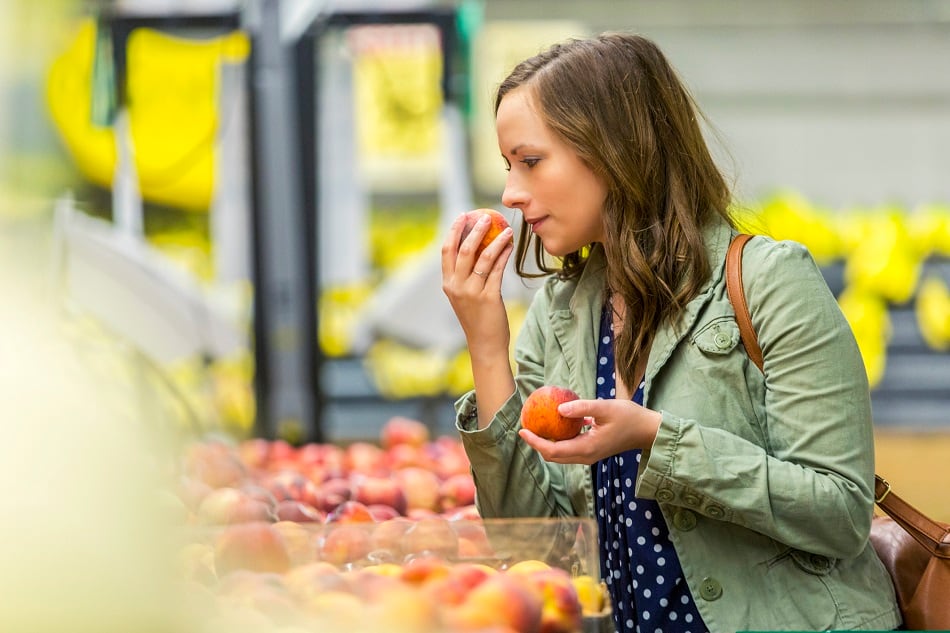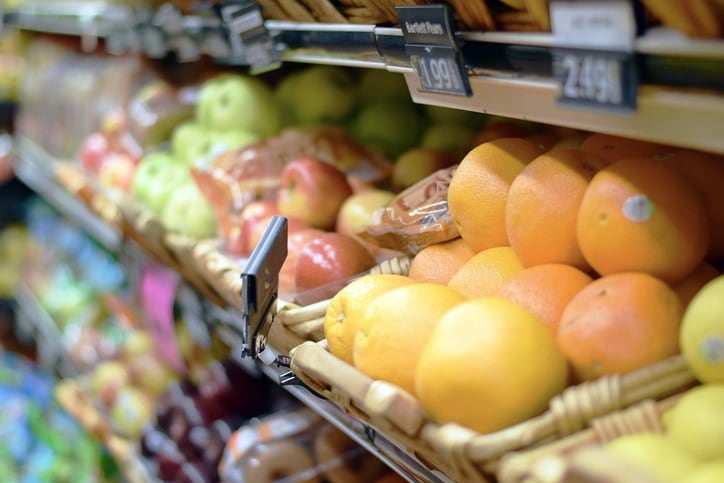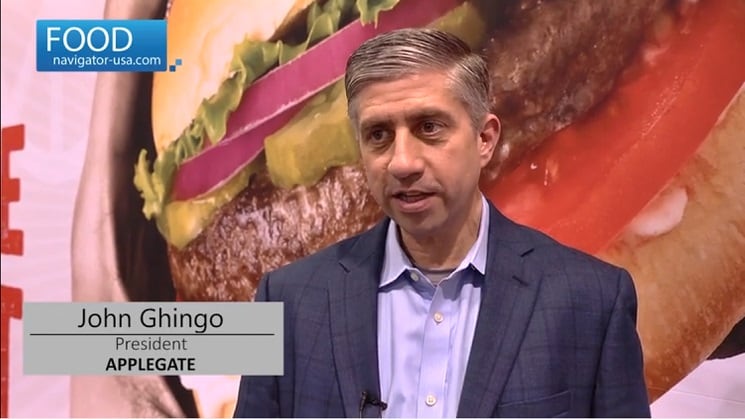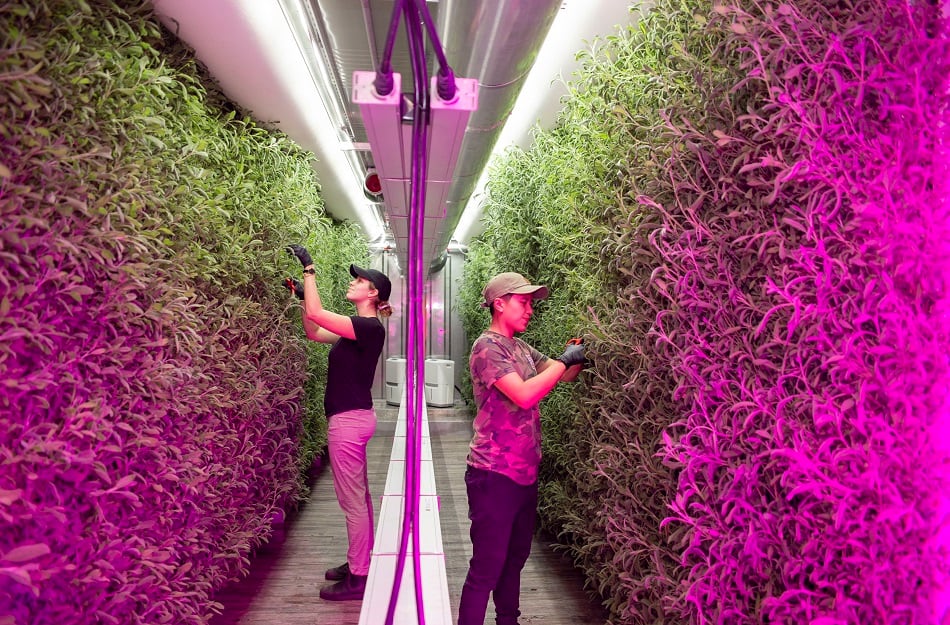A recent Nielsen study found that 46% of consumers are more aware of the term 'buy local' compared to other food-related causes such as food waste in home (22%) and foods that provide a functional benefits (22%).
"We know the term local is important to consumers, but in order to deliver on what consumers want, manufacturers and retailers need to understand what consumers are actually looking for," Nielsen said.
Defining local is a challenge as it has no formal definition and there are many interpretations that vary by retailers, manufacturers, and consumers. Nielsen currently tracks $239m of CPG sales that call out 'local' on pack.
What's the cut off point for local?
Consumers' definition of local varies by category and by product, according to Nielsen. In some cases, consumers define local as products from their local city and in other cases, products are perceived as local when they come from the same state.
"There are even products that Americans view as local just as long as they come from within the US," noted Nielsen, which found that in a survey of 20,000 consumers (US Homescan Panel Survey, December 2018), the highest agreement of a local definition was for shelf stable products -- 34% said products in this category can be local as long as they come from within the US.
Local can be informally defined as the number of miles a product had to travel to get to the grocery store. Nielsen asked respondents what they believe is the maximum distance from a store that a product can be produce and still be considered 'local'.
"Less than 50 miles had the highest consensus among the respondents across all products, but the level of agreement varied from the highest (50%+) for bakery and foodservice to the lows (low 20%) for frozen and shelf-stable foods," Nielsen said.
For bakery, eggs, food service, and produce, respondents' local radius was much smaller, preferring these products to come from no more than 50 miles away. For dairy and meat, respondents concept of local expanded to coming from within the same state as the store.
Local produce resonates most with consumers
"It’s probably not too surprising, but produce tops the list, as 58% of consumers stating that buying local produce is important to them," Nielsen said.
And the industry push to provide consumers with local produce options no matter what city they're in has taken off with startups such as BrightFarms and Gotham Greens setting up hydroponic greenhouses in urban areas throughout the US bringing local product nationwide. Another emerging player is Square Roots, founded by Kimbal Musk (brother of Elon Musk), which uses refurbished, high-tech shipping containers with 320 square feet of vertical growing space to grow leafy greens, tomatoes, and strawberries. The startup announced earlier this year that it was taking its ultra-scalable urban farming model nationwide with Gordon Food Service.
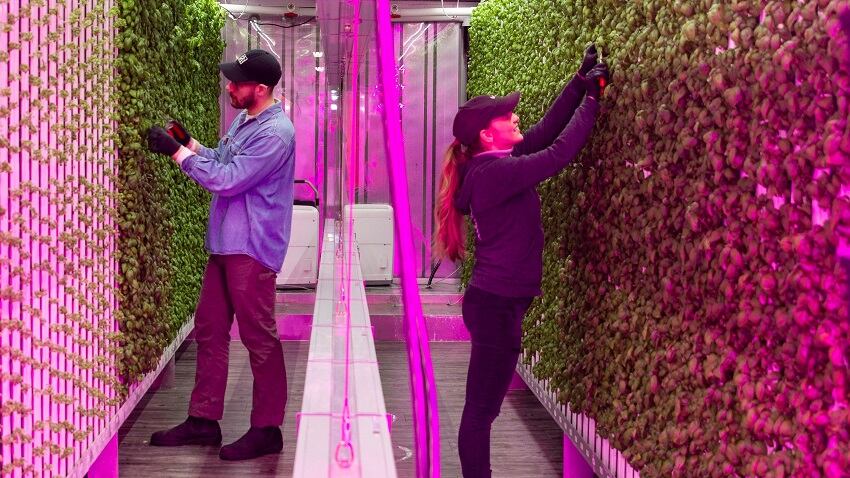
Frozen goods, seafood, and shelf stable goods were perceived as local as long as they were produced within the US, according to Nielsen research.
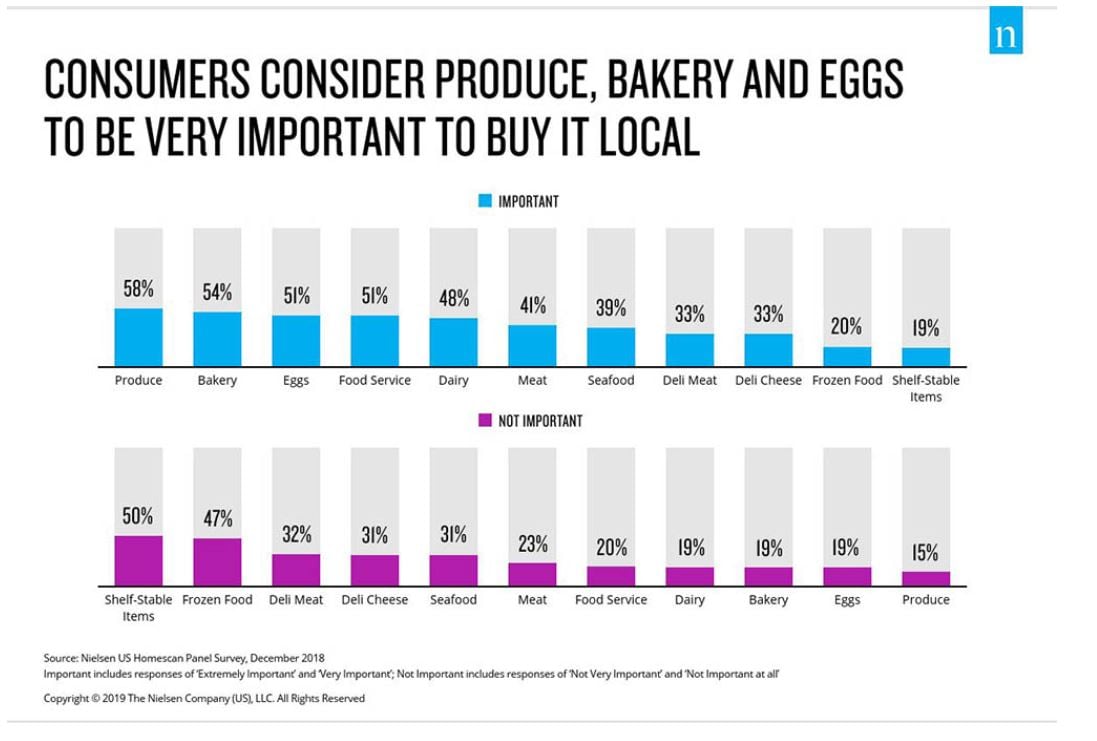
Who feels most strongly about buying local?
Nielsen found that across consumer groups, low-income consumers are more likely to say that buying local is 'extremely important' to then across all products compared to the general population.
Young families say buying local is extremely important to them for their deli items, bakery, produce, as well as their shelf-stable and frozen goods. Millennials say local matters most in the frozen department.

